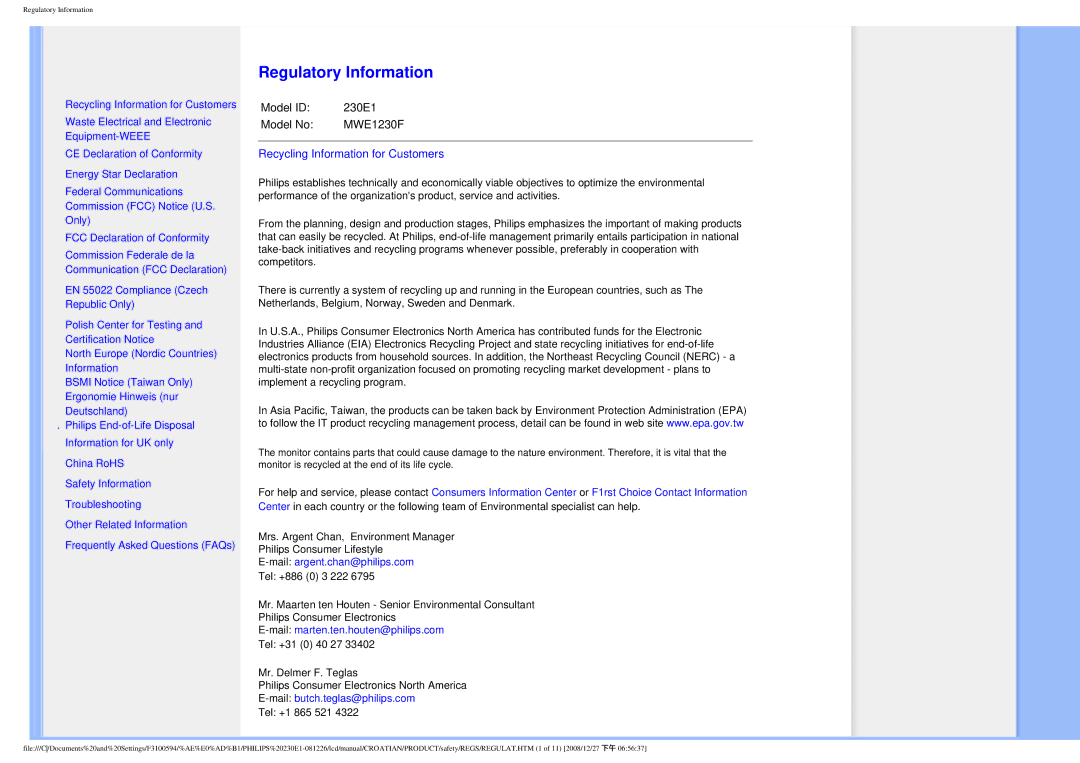2.30E+03 specifications
The Philips 2.30E+03 is a remarkable piece of technology, showcasing the company's dedication to innovation and quality. This model is particularly known for its outstanding performance in the audio and visual sectors, targeting both consumer and professional users who demand high standards in their devices.One of the main features of the Philips 2.30E+03 is its advanced image processing technology. This technology enhances picture quality by optimizing color accuracy and contrast, ensuring that users experience clear, vibrant images. The incorporation of high dynamic range (HDR) capability allows for a broader range of brightness and color saturation, making the viewing experience more immersive. Whether for watching movies or gaming, this feature significantly elevates the quality of visual media.
In terms of audio capabilities, the Philips 2.30E+03 is equipped with state-of-the-art sound technology. The device supports surround sound formats, providing an enveloping audio experience that draws in users. The integration of features such as Dolby Atmos takes audio performance to new heights, creating a three-dimensional sound environment that enhances movies and music alike.
Connectivity plays a crucial role in the usability of the Philips 2.30E+03. The model offers a wide range of ports, including HDMI, USB, and optical audio outputs. This ensures seamless integration with multiple devices such as gaming consoles, streaming devices, and sound systems. Wireless capabilities, including Bluetooth and Wi-Fi, allow users to stream content effortlessly from their smartphones, tablets, or, PCs.
Durability and design are also key characteristics of the Philips 2.30E+03. The device is built with high-quality materials, ensuring longevity and reliability. Its sleek and modern design not only makes it a functional piece of technology but also an attractive addition to any home or office setup.
Furthermore, the user interface of the Philips 2.30E+03 is designed with user experience in mind. With intuitive navigation and smart features, users can easily access settings, apps, and content without hassle. Voice control capabilities further enhance this convenience, allowing for a hands-free operation that is both modern and practical.
In conclusion, the Philips 2.30E+03 stands out with its blend of cutting-edge image processing, superior sound quality, excellent connectivity options, and user-friendly design, making it a highly desirable choice for anyone seeking to elevate their audio-visual experience.

